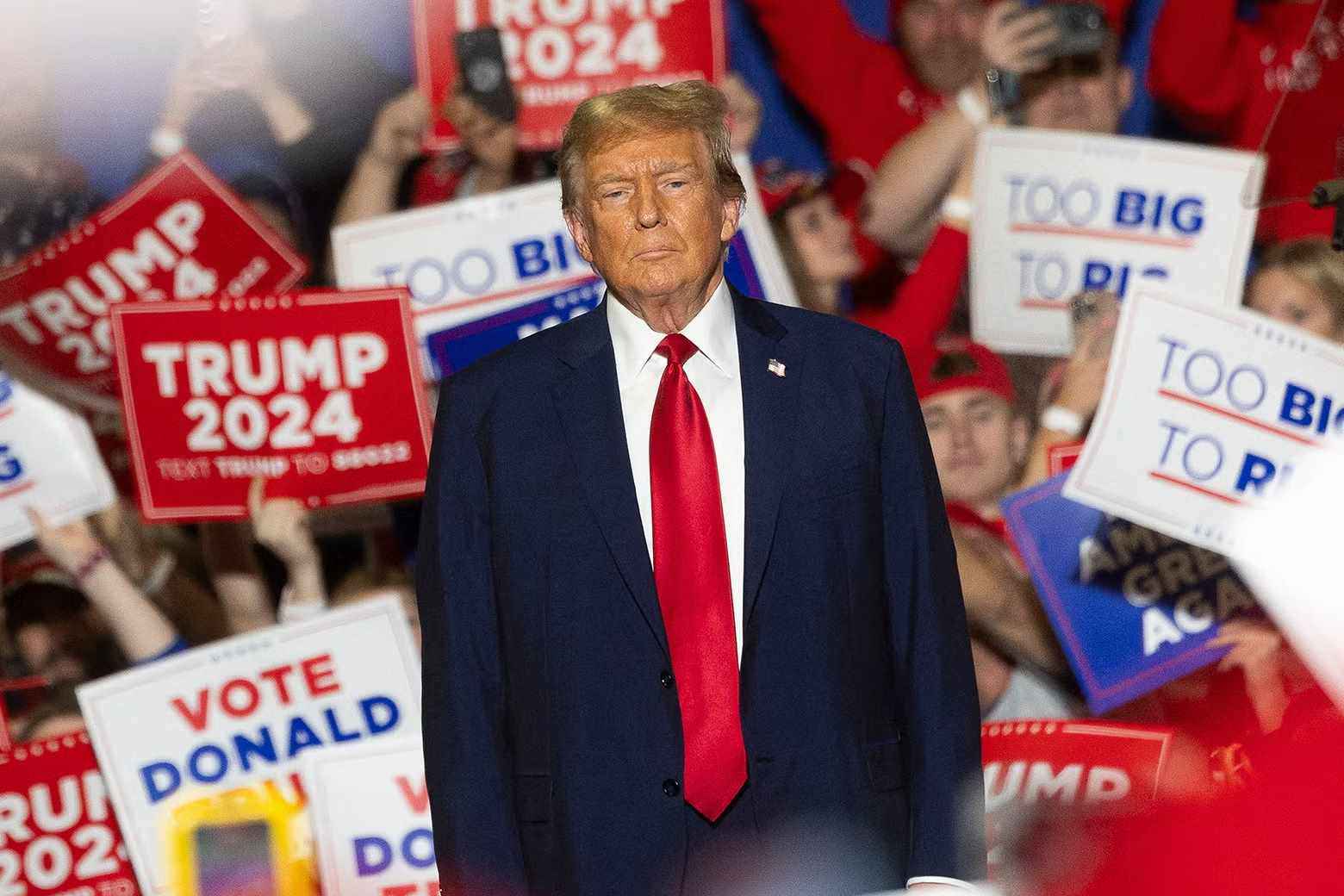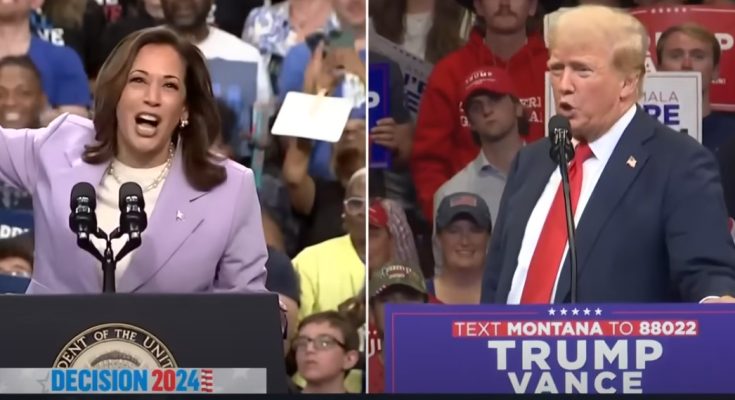In a surprising turn of events, former President Donald Trump delivered a speech in Wilbury, Pennsylvania, that can only be described as a meltdown, with a notably small audience that began leaving early.

The speech was filled with bizarre claims, personal attacks, and increasingly unhinged remarks, leaving many wondering about the state of Trump’s political influence.
At the outset, Trump compared his appearance to that of Vice President Kamala Harris, bizarrely asserting that he is “a better-looking person” than her.
This claim was met with awkward applause, as the crowd continued to thin out. The tone of the speech was set early on, with Trump veering off script to make wild accusations about President Joe Biden, including a baseless claim that Biden “hates” Harris.
The disjointed nature of Trump’s speech became more apparent as he began to complain about his 2020 election loss, lamenting that he was “running against Biden” but ended up “running against somebody else,” alluding to Harris.
The former president also preemptively defended himself against potential criticism, insisting he wasn’t “rambling” despite the increasingly erratic nature of his remarks.
In a particularly odd moment, Trump mocked Vice President Harris’s laugh, repeatedly calling her a “lunatic” and suggesting she had been “prohibited” from laughing by some unnamed authority. This line of attack seemed to confuse even his supporters, as he continued to dwell on it without any clear purpose.
Trump’s fixation on Harris extended to her appearance on the cover of Time Magazine, where he sarcastically suggested that the magazine had used an “unbelievable artist drawing” instead of a photograph because, according to him, they couldn’t get a good picture of her. He went on to express disbelief that Harris could be considered a “beautiful woman,” again comparing himself favorably to her.
As the speech dragged on, Trump delved into praise for the right-wing Supreme Court, hailing them as “courageous” for overturning Roe v. Wade. He ominously warned of “consequences” for anyone who criticized the Court, a statement that further highlighted the increasingly authoritarian tone of his rhetoric.
Towards the end of his speech, Trump issued a dire warning that America would face a “1929-style depression” if he wasn’t elected in the upcoming presidential race, before bizarrely telling the audience to “enjoy it” if that scenario came to pass. He also repeatedly declared that the country was “going to die” if he wasn’t returned to power, a refrain that sounded more desperate than motivational.
The spectacle of Trump’s speech in Wilbury, combined with the visibly dwindling crowd, suggests that his grip on his base might be loosening.
The rambling, grievance-filled address lacked any substantive policy discussion and instead focused on personal vendettas and unfounded conspiracy theories. As Trump continues to campaign for the presidency, it remains to be seen whether these types of performances will resonate with voters or further erode his support.



